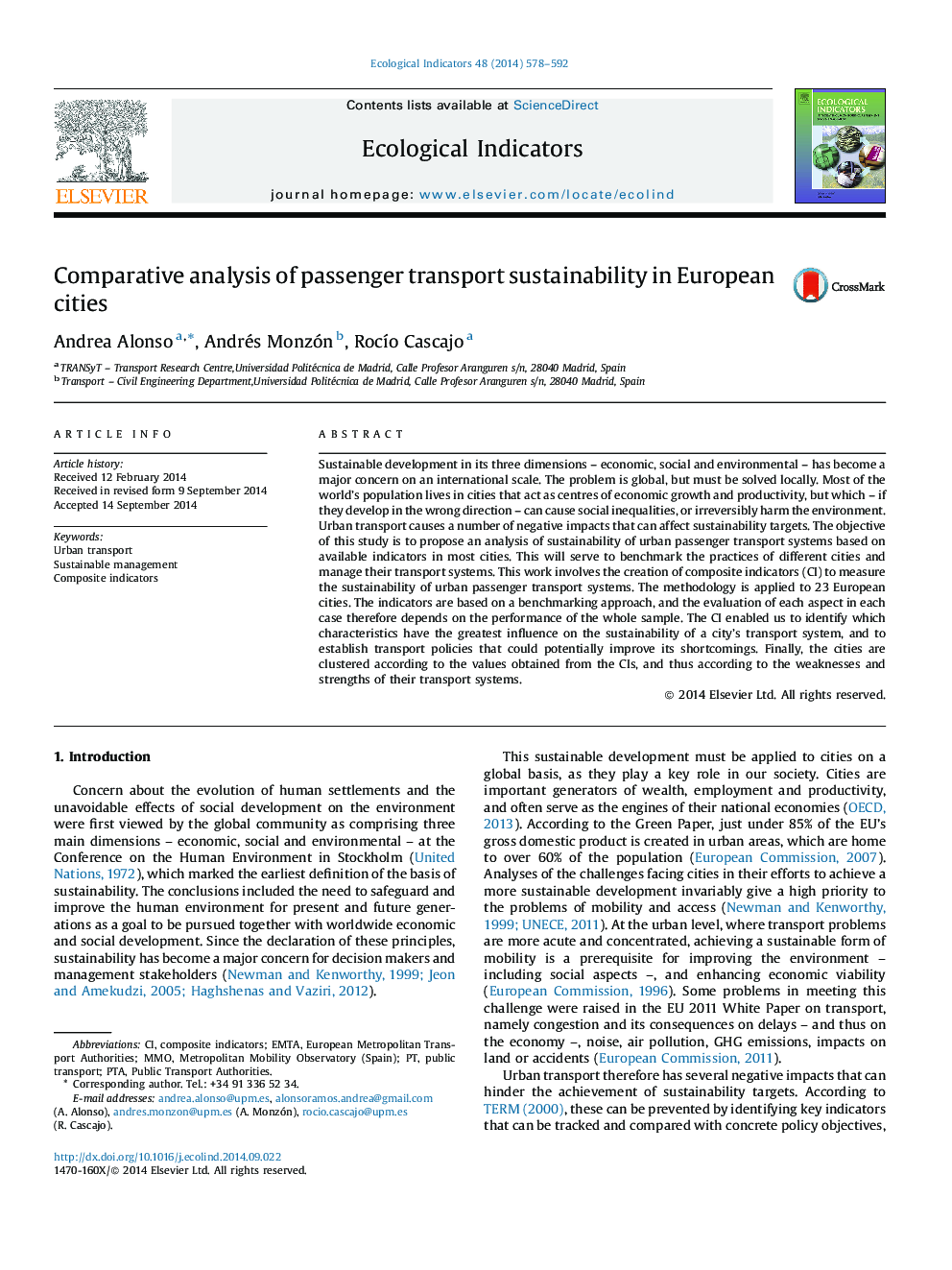| Article ID | Journal | Published Year | Pages | File Type |
|---|---|---|---|---|
| 6295109 | Ecological Indicators | 2015 | 15 Pages |
Abstract
Sustainable development in its three dimensions - economic, social and environmental - has become a major concern on an international scale. The problem is global, but must be solved locally. Most of the world's population lives in cities that act as centres of economic growth and productivity, but which - if they develop in the wrong direction - can cause social inequalities, or irreversibly harm the environment. Urban transport causes a number of negative impacts that can affect sustainability targets. The objective of this study is to propose an analysis of sustainability of urban passenger transport systems based on available indicators in most cities. This will serve to benchmark the practices of different cities and manage their transport systems. This work involves the creation of composite indicators (CI) to measure the sustainability of urban passenger transport systems. The methodology is applied to 23 European cities. The indicators are based on a benchmarking approach, and the evaluation of each aspect in each case therefore depends on the performance of the whole sample. The CI enabled us to identify which characteristics have the greatest influence on the sustainability of a city's transport system, and to establish transport policies that could potentially improve its shortcomings. Finally, the cities are clustered according to the values obtained from the CIs, and thus according to the weaknesses and strengths of their transport systems.
Related Topics
Life Sciences
Agricultural and Biological Sciences
Ecology, Evolution, Behavior and Systematics
Authors
Andrea Alonso, Andrés Monzón, RocÃo Cascajo,
